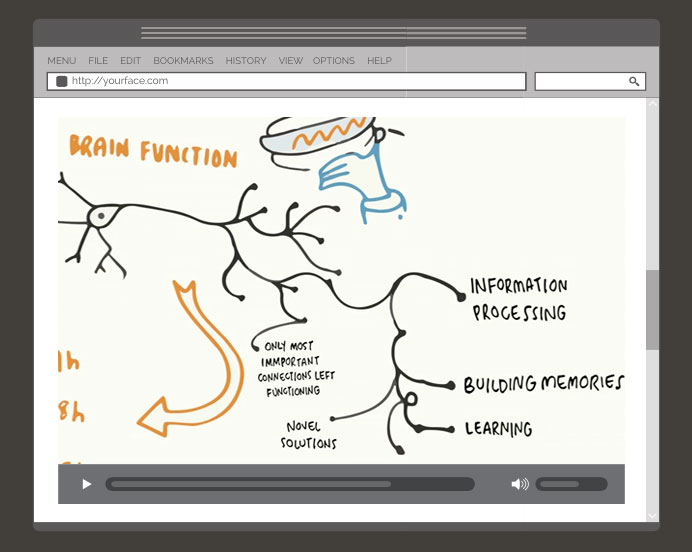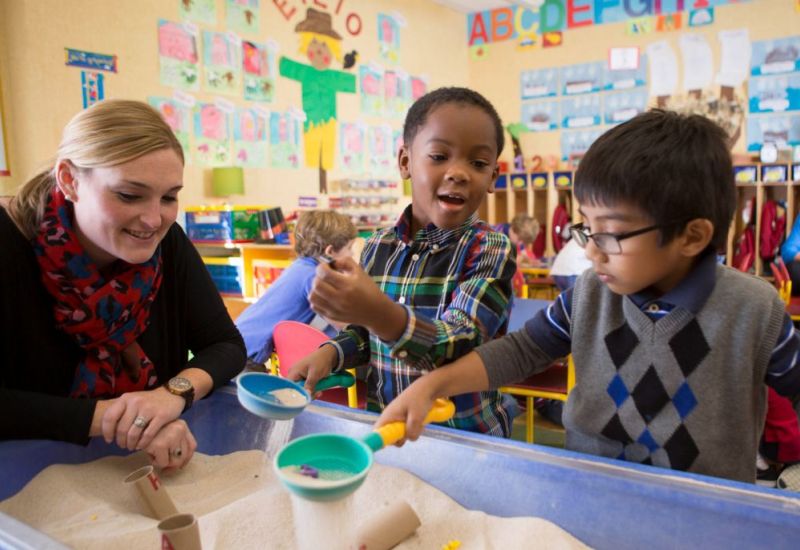
How Much Sleep Does My Child Need?
It’s no secret that young boys have energy to spare, and getting your son to sleep at night can be a challenge whether he is in preschool or school-aged. Sleep is a vitally important part of the mental and physical development of your son, and making sure he gets the proper amount of rest is worth the extra effort.
“Every living creature needs sleep. Sleep is especially important in children of all ages as it directly impacts physical and mental growth and development.” — Dale Hill, Presbyterian Day School Nurse
Diminished performance: a sleepy 6th grader performs at the same level as a normal 4th graderThe New York Magazine published a powerful article a few years ago about the impact that too little sleep has on us, and especially on children and students. The article cites studies that indicate that:
- A loss of one hour of sleep is equivalent to the loss of two years of cognitive maturation and development. In other words, a sleepy 6th grader performs at the same level as a normal 4th grader.
- A loss of one hour of sleep corresponds to an average reduction of 7 points on IQ and other standardized tests scores, and that difference shows up as early as early childhood. Sleep disorders can impair children’s IQ’s as much as lead exposure.
What’s the purpose of sleep?
Isn’t sleep just a waste of hours in which we might otherwise spend playing or being productive?
It turns out that sleep isn’t just mindless. The brain is doing a tremendous amount of activity, including sorting and synthesizing all sorts of information from the day. Neural connections are forming. Memories are encoded. Learning from the day is processed and imprinted. Inferences and new ideas are developing.
“Our ability to come up with novel solutions to complex problems is hugely enhanced by a night of sleep. In fact, it’s been estimated to give us a threefold advantage.” — Russell Foster, Circadian Neuroscientist
The brain is learning and developing its cognitive architecture, even and especially during deep stages of sleep.
For more on the science of why we sleep, check out neuroscientist Russell Foster’s TED talk.
“In Fit For Life class, we study how proper amounts of sleep can help our boys during the school day. With adequate hours of sleep we stress how they can focus better in class, have sustained energy, physically feel better, and be able to control their emotions” — Dwight Creasman, PDS Fit For Life Teacher
So what’s the right amount of sleep?
Well, according to the National Sleep Foundation, preschoolers typically sleep up to 13 hours each night and most stop taking naps after age 5.
But as you know, getting a 5-year-old to do anything for 13 hours straight isn’t easy. From ages 3 to 5 kids are developing their imaginations rapidly, and while that can be great for school and play, it can also make for some difficult nights, as noises and shadows can be interpreted in whole new — and sometimes scary — ways.
Meanwhile, older kids need slightly less sleep than they did when they were younger — about 10–11 hours a night. Still, finding that time gets more difficult as the demands of school, sports and other extracurricular and social activities grow. Electronic distractions (TV, computer gaming, Internet, etc.) also become more prevalent, as well as caffeine products.
The NSF has a number of ways you can help your children get more sleep that basically boil down to five things:
- Stick to a regular bedtime;
- Have a relaxing bedtime routine;
- Keep the room cool, quiet and dark;
- No TV;
- Reduce screen time
Oh, and avoid caffeine — but it’s probably a good guess you knew that one already. Maybe you knew the others, too.
No really, turn off the screen
Keeping a television in your child’s room may be one of the biggest reasons he’s not getting enough sleep. A recent study found a “small but consistent association between increased television viewing and shorter sleep duration” with the effects appearing to be stronger in boys than in girls.
Another study found that children who spend time using a computer, tablet, or device right before bedtime tend to take longer to fall asleep.
This email address is being protected from spambots. You need JavaScript enabled to view it.
Available year-round!
We love showing off our campus and our boys.
To Schedule a tour, contact Rachel Bishop, Director of Admission at












